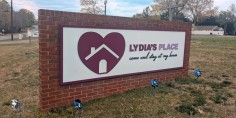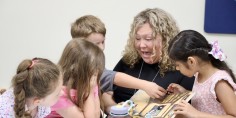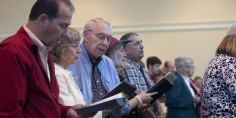A $225,000 grant from The Duke Endowment is helping United Methodist churches support the effort.
On a recent weekday, the former school that houses Partners in Ministry is a hub of activity. McCallum walks the wide hallways, pointing teens in the right direction and checking on tutoring sessions. She believes in empowering young people to be leaders in the community — “change agents” for the future. But she knows the charge is daunting.
Just beyond the school’s 11 acres, the skeleton of a textile mill has crumbled to the ground. Charred lumber and metal roofing lie in a tired heap. Rainwater has pooled in a stagnant pond. For decades, the giant mill offered steady work. Now, it’s a grim reminder of the challenges this rural area faces.
“We have high unemployment. Teen pregnancy. Gang violence,” McCallum says. “People lack housing and food. But we also have churches on every corner willing to become partners for families on the marginal edge of society.”
As Partners in Ministry expands and adds services, McCallum often works late into the night, applying for grants or recruiting volunteers. But this isn’t just her job, she says. It’s her passion.
“When God calls me in another direction, I want to be able to say that I have answered the call — that I’ve tried to make a difference in somebody’s life.”








